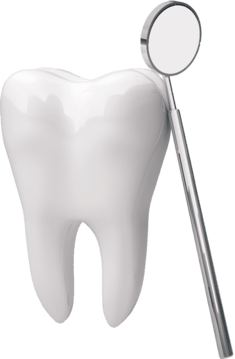Endodontics
What is Endodontic Dentistry?
Endodontics is a specialized branch of dentistry that focuses on the study and treatment of the dental pulp and tissues inside the tooth. One of its most well-known procedures is root canal therapy, which has gained a somewhat undeserved reputation for being intimidating and painful. However, in reality, endodontic treatments, including root canal therapy, play a vital role in saving teeth and relieving dental pain, ultimately preserving natural smiles.

Endodontics and Dental Pulp
The dental pulp, located within the core of the tooth, contains a network of nerves and blood vessels, supplying nutrients and oxygen to the tooth. During the tooth’s development, the dental pulp is essential for the growth and maturation of the surrounding hard tissues, such as dentin and enamel. Once the tooth fully matures, it can survive without the pulp, as it continues to receive nourishment from the surrounding tissues.
When is Endodontic Treatment Needed?
Endodontic treatment becomes necessary when the dental pulp becomes infected, inflamed, or injured due to various reasons. Some of these reasons can include:
1. Untreated Cavities: Dental caries (cavities) that are not promptly addressed can progress and reach the dental pulp, leading to pulp inflammation or infection.
2. Dental Trauma: An accident or injury to the tooth can cause damage to the dental pulp, resulting in inflammation or necrosis.
3. Faulty Dental Procedures: In some cases, previous dental treatments, such as fillings or crowns, may lead to complications that affect the dental pulp.
4. Cracked or Fractured Teeth: Cracks or fractures in teeth can provide a pathway for bacteria to enter the dental pulp, causing infection.
What are the Advantages of Endodontic Treatment
1. Preserving Natural Teeth: Endodontic treatment allows dentists to save severely decayed or damaged teeth that might otherwise need extraction. Preserving natural teeth is always the preferred option for maintaining optimal oral health and function.
2. Relief from Pain: Endodontic treatment effectively addresses the source of dental pain caused by infections or inflammation in the dental pulp.
3. Improved Aesthetics and Function: By treating the infected tooth and restoring it with a crown, the tooth’s appearance and functionality can be fully restored.
4. Cost-Effective Solution: Root canal therapy is often more cost-effective in the long run than extracting the tooth and replacing it with a dental implant or bridge.
How to Avoid the Need for Endodontic Treatment
While endodontic treatment is highly successful, prevention is always the best approach to maintain optimal dental health. Practicing good oral hygiene, visiting the dentist regularly, and addressing dental issues promptly can help reduce the risk of needing endodontic treatment.
Endodontics
Endodontics is a critical field of dentistry that allows dentists to save damaged teeth and relieve dental pain. Root canal therapy, one of the most common endodontic procedures, is a safe and effective treatment that helps preserve natural smiles.

Contact Us At Alpine Dental For Endodontic Treatment in Swift Current



 Monday – Friday 8AM – 4PM
Monday – Friday 8AM – 4PM